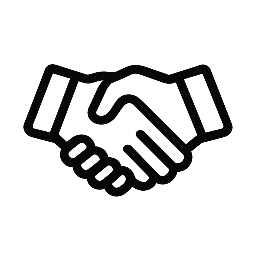JAV “ADN-067 You, And Forgive …” by Ayaginu Mika
The story titled "ADN-067 You, And Forgive …. – Immoral Of Drainage – One Article Ayaginu Mika" presents a complex narrative woven with themes of morality, forgiveness, and human emotion. It centers around characters navigating morally ambiguous situations, with particular focus on Ayaginu Mika, whose role underscores the story’s exploration of personal and societal values. This article aims to dissect the narrative structure, character development, thematic elements, and audience reception, providing a comprehensive understanding of this thought-provoking work.
Overview of ADN-067: Exploring Its Narrative and Themes
ADN-067, often referred to by its full title "You, And Forgive …. – Immoral Of Drainage," is a narrative that delves into the blurred lines between morality and immorality. The story is set against a backdrop of personal conflict and societal expectations, exploring how characters confront their inner dilemmas. The plot weaves through moments of tension, revelation, and introspection, ultimately questioning what it means to forgive and whether certain actions can be justified within moral boundaries.
The story employs a layered storytelling approach, intertwining personal narratives with broader societal commentary. It challenges readers to consider the relativity of morality, illustrating how circumstances and emotions influence perceptions of right and wrong. Themes of betrayal, redemption, and the complex nature of human relationships are central, inviting reflection on the consequences of actions deemed immoral by societal standards.
Narratively, ADN-067 balances intense emotional scenes with philosophical musings, creating a compelling tension that keeps the audience engaged. The pacing allows for deep character development, revealing motivations and internal struggles. The story’s structure encourages readers to question their own moral judgments, fostering a dialogue between the narrative and personal ethics.
The title itself hints at the core themes—"You, And Forgive" suggests a focus on interpersonal forgiveness, while "Immoral Of Drainage" alludes to the idea of moral contamination or the draining of ethical boundaries. This duality underscores the story’s exploration of how morality can be compromised or tested in difficult circumstances. Overall, ADN-067 presents a thought-provoking narrative that examines complex ethical questions through its intricate plot and thematic depth.
Character Analysis: Ayaginu Mika and Her Role in the Story
Ayaginu Mika emerges as a central character whose actions and internal conflicts drive much of the story’s emotional weight. She is portrayed as a multifaceted individual, grappling with feelings of guilt, betrayal, and the desire for redemption. Mika’s character arc reflects her struggle to reconcile her moral compass with the circumstances she finds herself in, making her a relatable and compelling figure.
Throughout the narrative, Mika is depicted as someone caught between societal expectations and her personal sense of justice. Her decisions often challenge traditional moral boundaries, which in turn prompts readers to question the motivations behind her actions. Her internal dialogue reveals a conflicted psyche, torn between the desire to forgive and the difficulty of doing so in a morally complex situation.
Mika’s interactions with other characters further illuminate her personality and moral stance. She exhibits moments of vulnerability and strength, embodying the human capacity for both moral failure and growth. Her development throughout the story underscores themes of forgiveness and moral ambiguity, illustrating that redemption is often a nuanced process rather than a clear-cut resolution.
In addition, Mika’s background and relationships provide context for her choices. Her past experiences influence her perceptions of morality and forgiveness, adding layers to her character. Her journey serves as a mirror for readers to reflect on their own moral boundaries and the complexities involved in forgiving others. Mika’s role is pivotal in shaping the narrative’s exploration of human morality and emotional resilience.
Overall, Ayaginu Mika is a richly developed character whose internal struggles and growth encapsulate the story’s core themes. Her presence invites viewers to consider the profound difficulty and necessity of forgiveness in a world rife with moral gray areas.
The Immoral Of Drainage: Examining Its Significance and Impact
The phrase "Immoral Of Drainage" functions as a metaphor within the story, symbolizing the depletion or contamination of moral integrity. It suggests that certain actions or circumstances can lead individuals to a point where their morality is compromised, akin to water being drained and leaving behind a void or impurity. This concept underscores the narrative’s focus on the erosion of ethical boundaries and the consequences that follow.
Within the story, "Drainage" signifies the gradual loss of moral clarity, often resulting from emotional distress or societal pressures. It highlights how individuals may find themselves engaging in behaviors they would normally consider unacceptable, driven by desperation, betrayal, or other intense emotions. The phrase encapsulates the idea that morality is not static but susceptible to external influences that can diminish or distort it.
The impact of this theme is significant in prompting reflection on human nature and societal norms. It challenges audiences to consider whether certain immoral acts can be justified under specific circumstances, or if they inevitably lead to personal and collective downfall. The story suggests that acknowledgment and understanding of this moral drainage are crucial for personal growth and reconciliation.
Furthermore, "Immoral Of Drainage" emphasizes the importance of forgiveness and redemption as counterforces to moral decay. It posits that recognizing one’s moral failings and seeking forgiveness can help restore integrity, much like purifying or replenishing a drained vessel. The phrase’s evocative imagery leaves a lasting impression, reinforcing the narrative’s exploration of morality’s fragile nature.
In essence, "Immoral Of Drainage" serves as a powerful motif that encapsulates the story’s core message: morality is vulnerable, and navigating its boundaries requires awareness, compassion, and the willingness to forgive both oneself and others.
Themes of Forgiveness and Morality in the Narrative
Forgiveness and morality are intertwined central themes in ADN-067, shaping the emotional and philosophical core of the story. The narrative probes the complex process of forgiving someone who has committed morally questionable acts, raising questions about whether forgiveness absolves or condones past misdeeds. It also examines how morality is challenged and redefined through personal experiences and emotional bonds.
The theme of forgiveness is portrayed as a difficult, often painful journey. Characters struggle to let go of resentment or guilt, confronting their own moral boundaries in the process. The story suggests that forgiveness is not simply an act of mercy but a necessary step toward healing and moral reconciliation. It emphasizes that forgiving does not necessarily mean forgetting or excusing, but rather understanding and acceptance.
Morality, as depicted in the story, is fluid and context-dependent. Characters are faced with dilemmas that force them to reconsider what is right or wrong, often in morally ambiguous situations. The narrative explores how societal norms may conflict with personal feelings, and how individuals must navigate these tensions to find their own moral compass. This exploration fosters a nuanced view that morality is often imperfect and subject to human imperfections.
The interplay between forgiveness and morality in ADN-067 highlights the possibility of redemption and moral growth. Characters who choose to forgive or seek forgiveness demonstrate resilience and moral courage. The story advocates that forgiveness can serve as a moral act that restores dignity and promotes understanding, even in the face of profound betrayal or wrongdoing. Overall, these themes underscore the importance of compassion and moral integrity in human relationships.
Ultimately, the narrative encourages reflection on how forgiveness can serve as a moral compass, guiding individuals through the complexities of human emotions and ethical challenges. It portrays forgiveness as a vital, transformative force that can heal wounds and restore moral balance, emphasizing its significance in personal and societal contexts.
Critical Reception and Audience Perspectives on the Work
ADN-067 has elicited diverse responses from audiences and critics alike, reflecting its provocative themes and complex storytelling. Many viewers appreciate its willingness to explore morally gray areas and the depth of its character development. The story’s nuanced portrayal of forgiveness and morality resonates with those interested in psychological and philosophical narratives, prompting thoughtful discussions about human nature.
Critics have generally praised the work for its compelling narrative structure and the richness of its thematic content. The character of Ayaginu Mika, in particular, has been highlighted for her multidimensional portrayal and emotional authenticity. The story’s imagery and metaphorical language, especially surrounding the concept of "Drainage," have been noted for their evocative power and contribution to the overall atmosphere.
However, some audience members have expressed reservations about the story’s moral ambiguity, feeling that it may challenge or unsettle traditional notions of right and wrong. Certain viewers have found the themes of betrayal and moral erosion to be uncomfortable or difficult to reconcile, which can lead to polarized opinions. Nonetheless, this controversy often underscores the work’s strength in provoking critical engagement.
The reception also reflects a broader appreciation for stories that do not offer easy resolutions, valuing ADN-067’s complex moral landscape as a mirror of real-life human dilemmas. Fans of psychological dramas and philosophical fiction tend to regard it as a thought-provoking piece that encourages introspection. The narrative’s open-ended nature invites multiple interpretations, fostering ongoing discussion within its audience.
In summary, ADN-067 has established itself as a compelling and challenging work that stimulates debate and reflection. Its reception underscores the importance of storytelling that confronts uncomfortable truths and explores the depths of human morality, making it a noteworthy contribution to contemporary narrative art.
Conclusion: Reflection on the Story’s Overall Message and Influence
ADN-067, through its intricate narrative and profound thematic exploration, offers a compelling meditation on morality, forgiveness, and human resilience. The story’s emphasis on moral ambiguity invites audiences to question their own perceptions of right and wrong, emphasizing that morality is often shaped by circumstances and emotional states. Its portrayal of characters like Ayaginu Mika highlights the complexities of human nature and the potential for growth amid moral struggles.
The work’s central message underscores the importance of compassion and understanding in navigating ethical dilemmas. It suggests that forgiveness is a vital component of moral integrity, capable of healing wounds and restoring dignity even in the face of betrayal or wrongdoing. The metaphor of "Drainage" vividly illustrates how morality can be drained or contaminated but also highlights the possibility of renewal through self-awareness and reconciliation.
Influence-wise, ADN-067 contributes to ongoing conversations about the nature of morality and the human capacity



